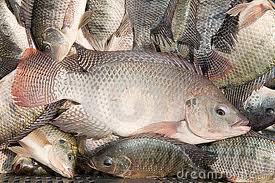As fish catches, especially, tilapia drop, against the trend of rising consumption, it is crucial to explore available water bodies in the country for fish farming, to augment the tilapia needs of the country.
Mr. Believe Kwaku-Mensah, Chief Executive Officer (CEO) of Wales Agro Limited, an agriculture focused company who spoke to the Ghana News Agency in Ho on Friday said that exploration was worthwhile as fish farming was a very profitable venture.
“Fish farming especially tilapia is a very lucrative business, due to its high demand both locally and internationally," he stated.
Mr. Kweku-Mensah called on people, especially those living along the Volta Lake to take advantage of the “cage culture fish farming method” of his company to invest in the sector.
Mr. Kwaku-Mensah said the company had constructed 40 large scale production cages, a local hatchery and a van for distribution of harvested fishes.
He said the Company invested a total of 300,000 Ghana cedis into the project, adding that, total fish production of the company last year was 56 tonnes with a net sale of 200,000 Ghana cedis.
Mr. Kwaku-Mensah hinted that the current expansion programme of the company especially at Abui-Anum in the South-Dayi District of the Volta Region could yield 200 tonnes of fresh tilapia this year.
He said the project had opened job opportunities for about 115 women adding that the company had also supported 25 others to purchase deep freezers for storage of fishes sold to them.
Mr. Kwaku-Mensah said a total of 66,400 Ghana Cedis was last December paid to about 15 people in the Greater Accra region who invested in the Wales Agro Tilapia Project.
He said the company had designed an entrepreneurship programme aimed at equipping young dedicated and disciplined entrepreneurs with the requisite skills in aquaculture management.
The CEO said as part of the Company’s social and community development programme, a three-classroom block estimated to cost 55,000 Ghana Cedis would be put up for the Abui-Anum basic school, which was currently under trees.
Business News of Monday, 7 April 2014
Source: GNA
Demand for Tilapia increases internationally













